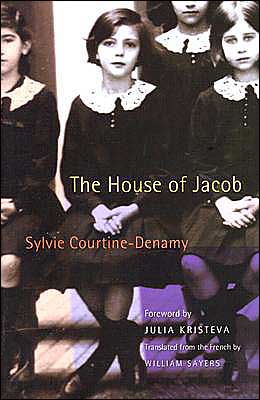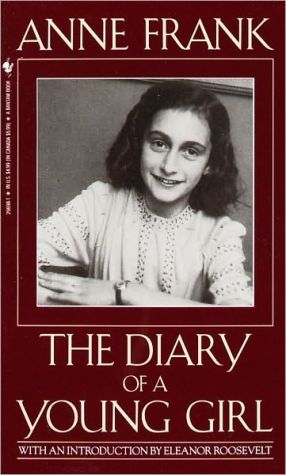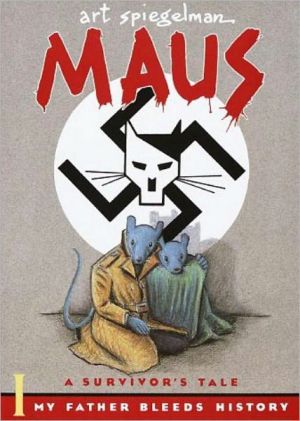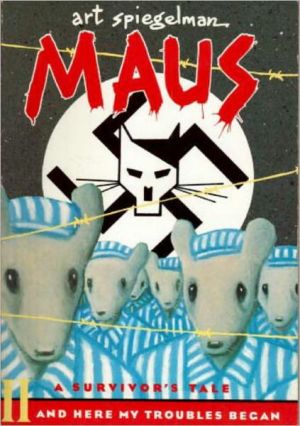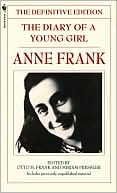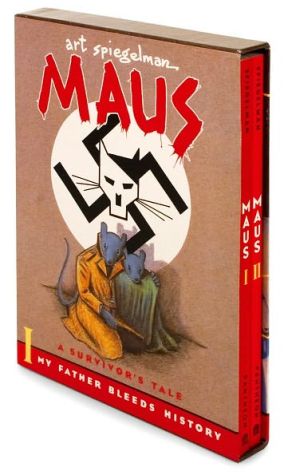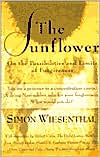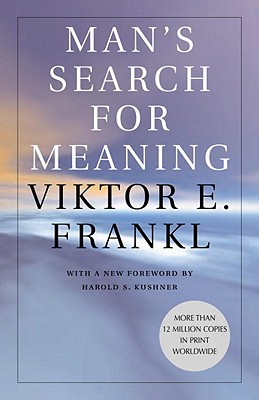The House of Jacob
In this touching and beautifully written book, Sylvie Courtine-Denamy traces her family's exile after their expulsion in 1492 at the time of Spanish unification. Their journey leads her to the exotic ports of Salonika, Constantinople, Bayonne, and Varna, to the cosmopolitan centers of Vienna and Paris, to America and Israel, and to Auschwitz. As she notes, while place and time separate us from those we love or never knew, something continues to link us. For Courtine-Denamy this "something"...
Search in google:
In this touching and beautifully written book, Sylvie Courtine-Denamy traces her family's exile after their expulsion in 1492 at the time of Spanish unification. Their journey leads her to the exotic ports of Salonika, Constantinople, Bayonne, and Varna, to the cosmopolitan centers of Vienna and Paris, to America and Israel, and to Auschwitz. As she notes, while place and time separate us from those we love or never knew, something continues to link us. For Courtine-Denamy this "something" is, in part, language-the Judeo-Spanish (Ladino) that is still spoken, whether on the banks of the Danube, on the Aegean Sea, or along the quays of the Seine. This powerful and moving history of one woman's family will strike a chord with those who have experienced exile and displacement. Julia Kristeva's foreword, which describes the book as being like a "refreshing spring shower," unearths a political intention in this carefully crafted story. One of the undercurrents in The House of Jacob, she notes, seems to be an implied criticism of the language policies of the State of Israel, in particular the imposition of the "sacred" language of Hebrew as a medium of everyday exchange, of domesticity, and of intimacy. Courtine-Denamy presents Sephardic culture as a counterpoint to the perceived prevalence of Ashkenazi culture in forming Jewish identity. Publishers Weekly The author of this intimate history of a Sephardic Jewish family, an associate researcher at Centre des Religions du Livre at France's prestigious Ecole Pratique des Hautes Etudes, was raised by nonobservant parents (as a schoolgirl, she insolently declared to her rabbi-teacher, "At our place we eat ham sandwiches!") who had changed the family surname from the Sephardic Coenca to a more French-sounding Denamy. It was only after their deaths that she took to heart her father's lifelong, if undefined, admonition to his only child: Zakhor (remember). But remember what? Both parents had been stingy with family lore. So she seeks out relatives as far-flung as California and Israel to augment and corroborate the scant stories she has. In Spain, she finds records of an ancestor, Juan Cuenca, a convert to Catholicism who in 1490 was posthumously found guilty by the Inquisition of secretly practicing Judaism. His grandson Joan, acquitted two years later of the same charge, left for Ottoman Turkey when the Jews were expelled from Spain. Like an archeologist trying to resurrect an entire civilization through assorted pottery shards, Denamy uses DNA and imagination to recreate her family's history. Among other things, she discovers the origin of some of the Judeo-Spanish idioms she grew up with. (The book is rife with Judeo-Spanish and includes a glossary of terms, as well as an indispensable family tree.) Readers with a more poetic turn of mind will appreciate Courtine-Denamy's journey as she traces her family from Salonika, Bulgaria and Constantinople to Israel, Austria and France. This slim volume was awarded the Alberto Benveniste Prize for Sephardi Literature in 2002. 1 map. (Oct.) Copyright 2003 Reed Business Information.
ForewordLanguages as One 's Only Homeland, by Julia Kristeva Acknowledgments Chapter I In the Land of Sepharad 1."Zakhor!" 2.Cuenca,the Memory of Origins Chapter II Into the Lands of the Grand Turk 1.Varna:"Cuenca Brothers " 2.Salonika Moïse and Allegra Mathilde and Marguerite 3.Constantinople On the European Shore,in the Galatasaray Quarter On the Asiatic Shore Chapter III Between East and West: A Time for Alliances 1.The Cuenca Michpaha 2.The Gabay Michpaha Chapter IV Drancy 1.The Return 2.From the Partisans to the Camps of Upper Silesia: Robert 3.Bayonne and Its Jews:Marie and Fortunée Chapter V In French Territorial Waters 1.A Wedding Night at the Péra Palas 2.In the House of Jacob Notes Glossary References Index
\ From the Publisher"At once tale and autobiography, this book leads us poetically and with fondness into the world of Sephardi Jewry through the story of a family. The language of everyday, the names of the protagonists, all invite us to a voyage in the imaginary, where everything becomes somehow more real than what is found in history books."-Esther Benbassa, École Pratique des Hautes Études, Sorbonne\ "The House of Jacob is an exceptional book with a powerful message that will now be accessible to English-speaking Sephardim. People with an interest in Jewish identity issues and connoisseurs of Jewish memoirs in general will appreciate Sylvie Courtine-Denamy's effective use of evocative detail and the intelligent weaving in of Judeo-Spanish language and lore."-Miriam Bodian, Pennsylvania State University\ "The author of this intimate history of a Sephardic Jewish family . . . took to heart her father's lifelong, if undefined, admonition to his only child: Zakhor (remember). . . . Readers with a more poetic turn of mind will appreciate Courtine-Denamy's journey as she traces her family."-Publishers Weekly, October 13, 2003\ "Ranging over three continents, several countries, and a dozen generations, Courtine-Denamy recounts the fates of various relatives up through her parents as they move through Salonika, Constantinople, Bayonne, Varna, Vienna, Israel, America, Paris, and the Nazi occupation. . . . As a capsule of history, this is an ambitious undertaking by a woman driven to preserve a culture and, especially, a language that has no home country. Julia Kristeva notes in the foreword that Courtine-Denamy's testimonial to the Judeo-Spanish language is a valuable counterpoint to the overwhelming recognition of Hebrew as the language of the Jews."-Library Journal, October 15, 2003\ "In Courtine-Denamy's memoir of her Sephardic Jewish family, she begins with their expulsion from Spain in 1492 and continues through the Holocaust. . . . Courtine-Denamy's powerful prose is a haunting work and a loving tribute to her extended family."-Booklist, October 15, 2003\ "The superior quality of this book consists of Courtine-Denamy's ability to integrate a family novel into this chronicle of Spanish Sephardic Jews."-Le Figaro Litteraire\ "The story written in a vivid style and ably translated from the French is seen through the eyes of a traveling minstrel who transcends the centuries. Central to the story is the remembrance of the Sephardic heritage, the Judeo-Spanish sprinkled through the text in poems and songs and that stubborn insistence on preserving those Spanish roots. Through Istanbul and Salonica, Varna and Rousse, Vienna and Paris, Drancy and the German extermination camps, the author weaves the history of her family into the larger chronicle of the Sephardic nation."-Erensia Sefardi, Fall 2003\ "Sylvie Courtine-Denamy presents Sephardic culture as a counterpoint to the assumption that Ashkenazi culture is the basis of Jewish identity. Her writing is by turns intimate, lyrical, and heroic. A history, a memoir, a virtuoso performance."-Jewish Book World, Spring 2004\ \ \ \ \ \ Publishers WeeklyThe author of this intimate history of a Sephardic Jewish family, an associate researcher at Centre des Religions du Livre at France's prestigious Ecole Pratique des Hautes Etudes, was raised by nonobservant parents (as a schoolgirl, she insolently declared to her rabbi-teacher, "At our place we eat ham sandwiches!") who had changed the family surname from the Sephardic Coenca to a more French-sounding Denamy. It was only after their deaths that she took to heart her father's lifelong, if undefined, admonition to his only child: Zakhor (remember). But remember what? Both parents had been stingy with family lore. So she seeks out relatives as far-flung as California and Israel to augment and corroborate the scant stories she has. In Spain, she finds records of an ancestor, Juan Cuenca, a convert to Catholicism who in 1490 was posthumously found guilty by the Inquisition of secretly practicing Judaism. His grandson Joan, acquitted two years later of the same charge, left for Ottoman Turkey when the Jews were expelled from Spain. Like an archeologist trying to resurrect an entire civilization through assorted pottery shards, Denamy uses DNA and imagination to recreate her family's history. Among other things, she discovers the origin of some of the Judeo-Spanish idioms she grew up with. (The book is rife with Judeo-Spanish and includes a glossary of terms, as well as an indispensable family tree.) Readers with a more poetic turn of mind will appreciate Courtine-Denamy's journey as she traces her family from Salonika, Bulgaria and Constantinople to Israel, Austria and France. This slim volume was awarded the Alberto Benveniste Prize for Sephardi Literature in 2002. 1 map. (Oct.) Copyright 2003 Reed Business Information.\ \ \ Library JournalProfoundly moved by the death of her parents, French academic Courtine-Denamy (Three Women in Dark Times) traces her family's roots back to the Spanish village of Cuenca, where her earliest known ancestors were Sepharadic Jews exiled during the Inquisition. Ranging over three continents, several countries, and a dozen generations, she recounts the fates of various relatives up through her parents as they move through Salonika, Constantinople, Bayonne, Varna, Vienna, Israel, America, Paris, and the Nazi occupation. Courtine-Denamy addresses much of her writing to her ancestors, speaking in the second person throughout much of the book-a technique that adds a degree of animation to the author's dead relatives but often doesn't work as the author must rely on presumption. Oral anecdotes and the author's memories enliven the text, as does the frequent use of expressions in Ladino, or Judeo-Spanish, all documented in a glossary. As a capsule of history, this is an ambitious undertaking by a woman driven to preserve a culture and, especially, a language that has no home country. Julia Kristeva notes in the foreword that Courtine-Denamy's testimonial to the Judeo-Spanish language is a valuable counterpoint to the overwhelming recognition of Hebrew as the language of the Jews. Suitable for Jewish studies collections.-Janet Sassi, New York Copyright 2003 Reed Business Information.\ \
